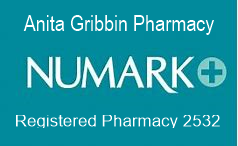Oral Thrush
Oral thrush - also called oral candidiasis - is a condition in which the fungus Candida Albicans accumulates on the lining of your mouth.
Candida is a normal organism in your mouth, but sometimes it can overgrow and cause symptoms.
Oral thrush causes creamy white lesions, usually on your tongue or inner cheeks, but it can sometimes spread to the roof of your mouth, your gums or tonsils, or the back of your throat.
Although oral thrush can affect anyone, it's more likely to occur in babies and older adults because they have reduced immunity, in other people with suppressed immune systems or certain health conditions, or people who take certain medications.
Oral thrush is a minor problem if you're healthy, but, if you have a weakened immune system, symptoms may be more severe and difficult to control.
In fact, thrush occurs in up to 2-5% of newborns as it is acquired from their mothers at birth and may appear as early as 7-10 days old. Use of antibiotics – especially in the first year of life – may lead to recurrent infection.
Oral thrush is uncommon in children older than 1 year old unless related to antibiotic use, those who are immunocompromised or steroid inhaler use without mouth rinsing post-use.
Symptoms
Initially, you may not even notice symptoms of oral thrush, but symptoms include:
- Creamy white lesions on your tongue, inner cheeks, and sometimes on the roof of your mouth, gums and tonsils
- Slightly raised lesions with a cottage cheese-like appearance
- Redness, burning or soreness that may be severe enough to cause difficulty eating or swallowing
- Slight bleeding if the lesions are rubbed or scraped
- Cracking and redness at the corners of your mouth
- A cottony feeling in your mouth
- Loss of taste
- Redness, irritation and pain under dentures (denture stomatitis)
Causes
Normally, your immune system works to repel harmful invading organisms, such as viruses, bacteria and fungi, while maintaining a balance between ‘good’ and ‘bad’ microbes that normally inhabit your body. But sometimes these protective mechanisms fail, increasing the number of candida fungus and allowing an oral thrush infection to take hold.
The most common type of candida fungus is Candida Albicans. Several factors, such as a weakened immune system, can increase your risk of oral thrush.
Risk factors
You may have an increased risk of oral thrush infection if any of these issues apply:
- Weakened immunity. Oral thrush is more likely to occur in infants and older adults due to reduced immunity. Some medical conditions and treatments can suppress your immune system, such as cancer and its treatments, organ transplantation and required drugs that suppress the immune system, and HIV/AIDS.
- Diabetes. If you have untreated diabetes or the disease isn't well-controlled, your saliva may contain large amounts of sugar, which encourages the growth of candida.
- Vaginal yeast infections. Vaginal yeast infections are caused by the same fungus that causes oral thrush. You can pass the infection to your baby.
- Medications. Drugs such as prednisone, inhaled corticosteroids, or antibiotics that disturb the natural balance of microorganisms in your body can increase your risk of oral thrush.
- Other oral conditions. Wearing dentures, especially upper dentures, or having conditions that cause dry mouth can increase the risk of oral thrush.
Treatment
If you think that you have oral thrush, then our pharmacists at Toome Pharmacy can prescribe appropriate treatment for you.
Daktarin oral gel is a medicine, which is used to treat fungal infections of the mouth, throat, gullet, stomach or gut. The gel contains miconazole, which works by destroying the fungus that is present. This medicine is for use in adults and children aged 4 months and above.
During your consultation, our pharmacist may provide you with some lifestyle advice to avoid a recurrence of your oral thrush and to help with the healing process. The pharmacist may suggest that:
- If you have diabetes, you should see your GP for review of your diabetic control and appropriate management
- If you wear dentures, you should leave your dentures out for at least 6 hours in each 24-hour period to promote healing of your gums
- If you use an inhaled corticosteroid, you should rinse your mouth with water after inhalation to remove any drug particles
Our pharmacist may also suggest ways in which you can reduce your risk of experiencing further candida infections. Our pharmacist may suggest that you:
- Rinse your mouth. If you need to use a corticosteroid inhaler, be sure to rinse your mouth with water or brush your teeth after taking your medication.
- Brush your teeth at least twice a day and floss daily - or as often as your dentist recommends.
- Watch what you eat. Try limiting the amount of sugar-containing foods you eat. These may encourage the growth of candida.
- Treat dry mouth. Ask your doctor about ways to avoid or treat your dry mouth.



